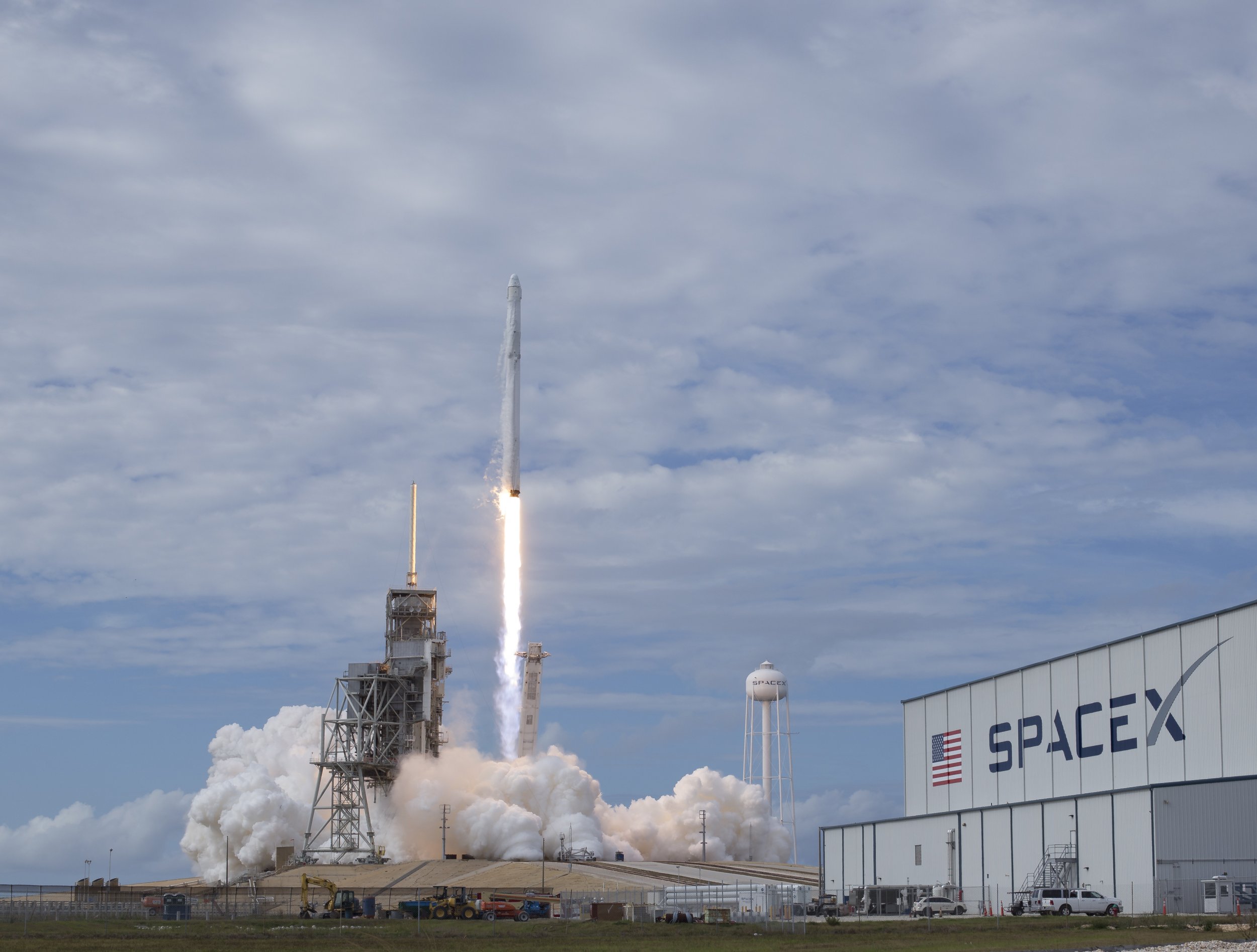
On Thursday, Elon Musk's SpaceX launched a Falcon 9 rocket carrying a payload including two internet satellites. But there was a second twist to the launch: It was Musk's first attempt to recover the nose cone of one of his rockets for reuse during another launch. In order to accomplish that feat, SpaceX sent out a "catcher's mitt" boat meant to intercept the part.
The endeavor is in keeping with Musk's general philosophy of making space travel cheaper by reusing as much equipment as possible. SpaceX is also in the business of re-launching entire Falcon 9 rockets and cargo capsules.
The nose cone is basically a shield at the tip of the rocket to protect its cargo during launch. Usually, it splits in half once the payload is past the most dangerous part of its journey, and the two pieces fall to Earth abandoned. But like everything else in life, nose cones aren't free.
"Imagine you had $6 million in cash in a palette flying through the air, and it's going to smash into the ocean," The Verge reports Musk said at a March 2017 press conference. "Would you try to recover that? Yes. Yes, you would."
So this launch, the company rolled out their plan to do just that. They kitted out the nose cone halves with navigation systems and parachutes. Then, they sent a boat dubbed Mr. Steven out into the Pacific Ocean. Sticking up from the ship is a giant grasping claw pointed to the sky with a net stretched between its prongs, which Musk hoped would catch at least one of the nose cone halves.
But after the launch, Mr. Steven failed in its quest. One of the halves fell a few hundred meters away from the boat. Nevertheless, Musk has said he intends to accomplish the feat within six months.
Read more: Trump Wants to Privatize the ISS—Here's What That Would Look Like
Despite the nose cone miss, the launch itself was a success, with the payload successfully reaching orbit. The internet satellites the rocket launched are the first step in what Musk hopes will be a major income source for the company, which has seen profits ebb and flow with launch success.
Uncommon Knowledge
Newsweek is committed to challenging conventional wisdom and finding connections in the search for common ground.
Newsweek is committed to challenging conventional wisdom and finding connections in the search for common ground.
About the writer
Meghan Bartels is a science journalist based in New York City who covers the science happening on the surface of ... Read more
To read how Newsweek uses AI as a newsroom tool, Click here.








